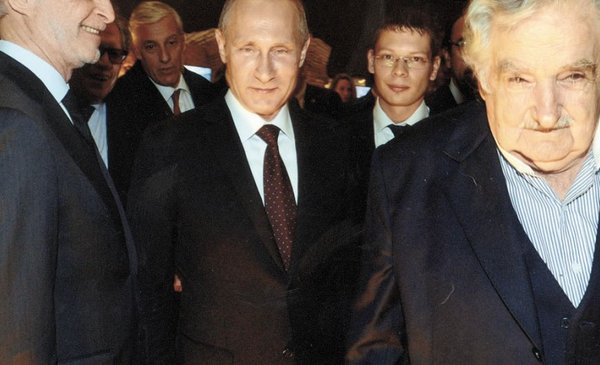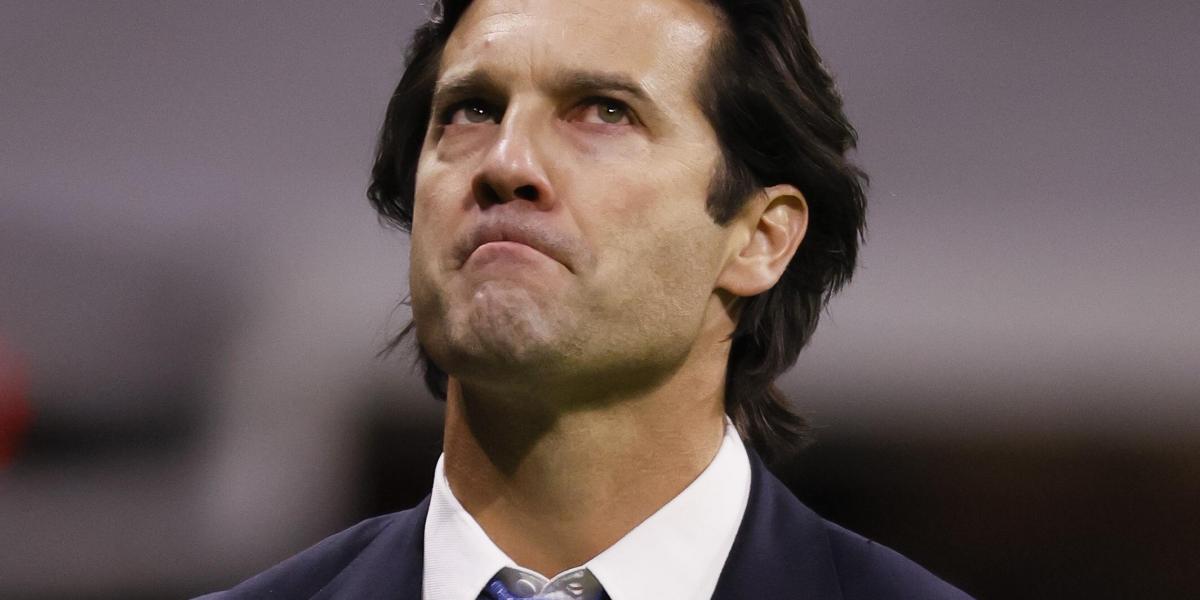Vladimir Putin and his political project for Russia is not an easy figure for the left to digest –and the Uruguayan is no exception–, between the verticality of his leadership and his position towards the powerful of the West. The president of the Broad Front, Fernando Pereira, applied cold cloths last Thursday to a complex debate in the face of the urgency of a pronouncement required by the advance of Russian troops on Ukraine.
The statement – conceived after several hours of discussion – limited itself to expressing the “concern in the face of the growing aggravation of the conflict”, and paved the way to go deeper in the Political Table on Monday. Pereira’s position did not stop other sectors from issuing more categorical judgments, although it was valued as a “healthy” step of ” prioritize a lowest common denominator” so as not to detach from the structure.
“He is a very mysterious and very Russian character for me”sums up former president José Mujica in dialogue with The Observer about the boss of the Kremlin. The emepepista returns to the same reference he used years ago in an interview with the Spanish program Salvados: “I spoke to him once and it was like talking to a statue. You can’t draw any conclusions.”
The Uruguayan approaches to Moscow – first through Mujica and in 2017 with Tabaré Vázquez – were crossed by commercial interests, from the “our country is small but it is in an important corner” of the emepepista to “they will find a favorable business climate” from oncologist to Russian businessmen.
From “authoritarian” to “conservative”
“It is necessary to clarify because it is seen that some stayed in time. Putin is not a communist and his conception is more of a right-wing nationalism than anything else. His government is not a socialist government, and with these actions they are nothing more than something condemnable by the Uruguayan communists.“, he stated to The Observer the general secretary of the Communist Party (PCU), Juan Castillo.
However, the two most voted sectors of the Broad Front (FA) –PCU and MPP– have not yet ruled on the issue, as the Socialist Party (PS) and the Seregnista Convocation did – and with greater harshness than the presidency. Progressives. From both sides they reported that they shared the terms expressed by Pereira on Thursday.
Consulted at a press conference this Monday about the dissenting voices with his statement, the former trade unionist emphasized that was “unanimously approved and ratified unanimously by the Executive Secretariat”. “So they will be voices of the spirit”finished.
“It is an authoritarian leadership of a nation that has a history with authoritarian leadership beyond the sign of the governments in office,” said the senator of the Uruguayan Assembly, José Carlos Mahía. “I say this since the time of the czars, (Joseph) Stalin or Putin. This type of society, beyond the system of government, generates authoritarian leadership and structures,” he indicated.
Mahía admitted that “obviously there are nuances within the FA” and that Pereira’s position was “healthy” –the search for the common denominator–, even though “the declaration is surely not what everyone aspired to”.
The general secretary of the PS, Gonzalo Civila, also attacked Putin: “He is a right-wing nationalist who applies an internal policy that, in the standards that we demand of societies in which we all fit, does not fit.” The deputy told The Observer that the leader “has a conservative outlook, clearly on the right and an expansionist position that reflects an imperialist vocation.”
Civila remarked that “when Putin announces this war action, he strongly criticizes Lenin that the process of “Ukrainization” has its explanation in his policy of self-determination, based on national identities” to “recognize sovereignty.” “Stalin was a great critic of that and undoes that policy,” she posed to equate both Russian leaders. She also questioned a “very strong oligarchic component” in the government.
The PS has had very critical positions but also approaches with the experience of the Soviet Unionfrom the opposition of the historical Emilio Frugoni to join the bloc of the giant from the east to the line of Vivian Trías, who was a spy for the Czechoslovakia Communist in the ’60s. The PCU, meanwhile, was admittedly pro-Soviet, except for nuances such as the “paths to the revolution”.
“There are contradictions that are very old,” Mujica said. “This man (Putin) has national pride. He lowered his guampas with a very stripped resignation, but he did not like that they put military bases on him, and it is seen that he joined forces and made the decision: ‘They are not going from here anymore’ It is a nationalist whim that he has,” he interpreted.
Between “imperialists”
“NATO’s persistence is nonsense, which lays bare the possibility of Europe. Europe is in the worst condition here, it has no stature,” Mujica said. “Any phenomenon of peace has to include, unfortunately, Germany and Russia. And there is no turning back,” he pointed out.
Both the communist Castillo and the socialist Civila spoke of an “inter-imperialist confrontation”. “For anything that costs human lives, it is necessary to condemn at the same time that those who cause the act are the members of NATO and the determined support of the United States. The two acts are reprehensible,” Castillo considered, and criticized his “determined intention to control the area geopolitically”. “We have no ambiguities in either of the two rejections: we condemn the action of NATO and that of the Russian government,” he clarified for the Civil part of it.
And what do you think in the FA regarding the geopolitical alignment of Russia with the leftist regimes of Nicaragua, Venezuela and Cuba? For Mujica “it’s all geopolitical convenience” and the ideological “has nothing to do with it.” The Astorist Mahía agreed with that line and stated that the affinity “is the same that China or the US can have with other regions.” “They are competitions between the powers for strategic allies,” he said.
Civila called for a “finer spin” and assured that “our region has always been very affected by US imperialism,” referring to “political balances that have always been there.” Juan Castillo, from the PCU, did not comment on the matter and indicated that they had not done that analysis.
In another order, Castillo put on the table that the communists are today the main opposition force in Russia – “they have been growing in electorate” – and that party denounced persecution in the country after the elections.
consulted for this note, Senators Mario Bergara and Daniel Caggiani preferred not to comment.
Mujica’s review
The former president said that “the Russian invasion (of Ukraine) condemns itself” and that “the world does not settle with declarations.” “Study the history of Russia. Remember that the founding hero was called Ivan the Terrible, that they came to Alaska, which is a Russian word, with a tradition that they were invaded five or six times by the Teutonic Knights, that Napoleon entered with half a million people and left with a personal escort, who banked two wars with Germany and lost 30 million inhabitants. Russia is an entire continent. It is not to define it that way, “he explained.







